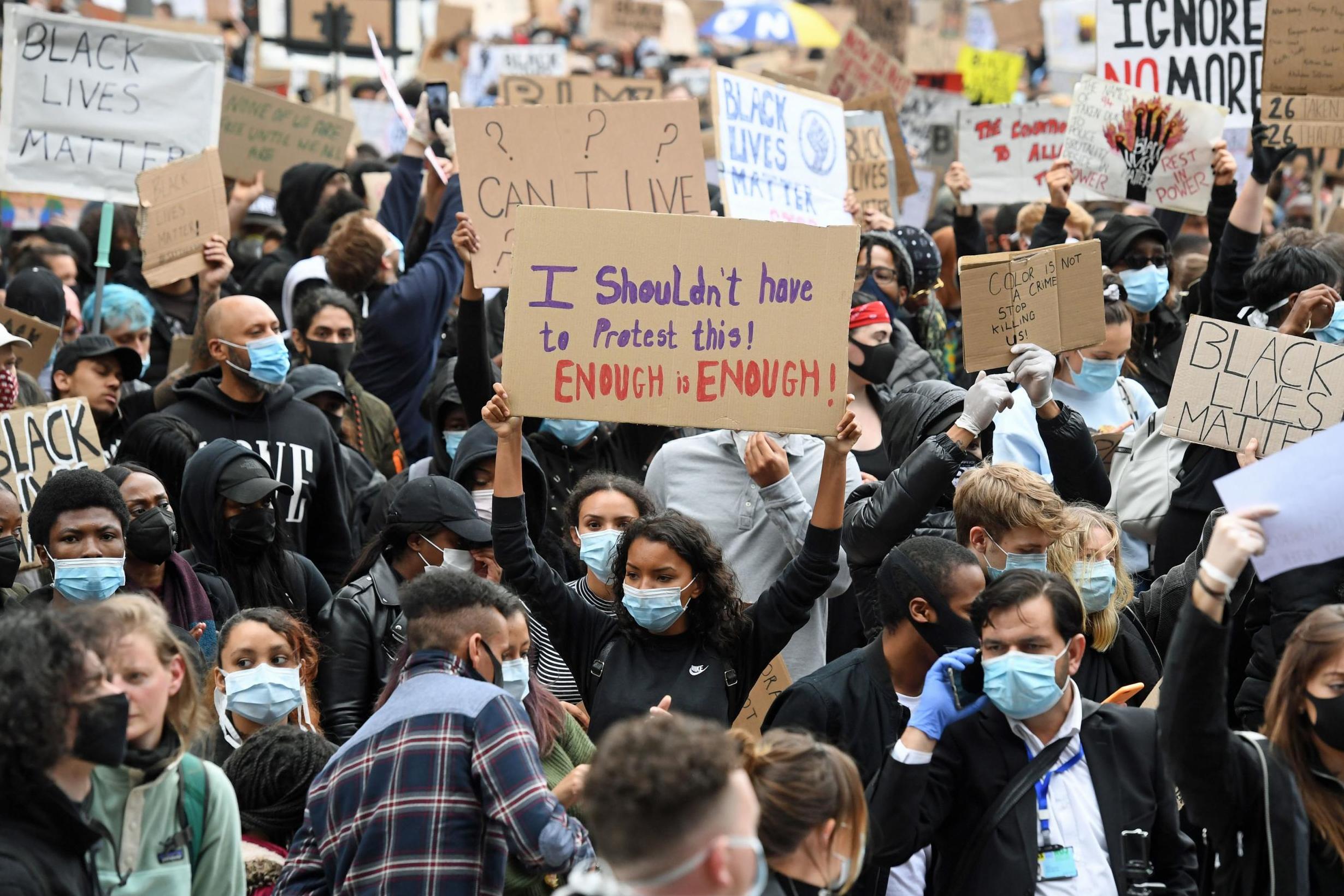A massive societal transformation is required for Black Lives to truly Matter
The sources of these inequalities far exceed the institutions of healthcare and policing, writes Anne Pollock

When so many in the US and in the UK first became transfixed by the dangers of the novel coronavirus, there was a strong narrative that we were “all in this together” as we were implored to “flatten the curve”. And yet, with each passing week, the racially and ethnically unequal pattern of who is most likely to be sickened and killed by Covid-19 has become increasingly visible.
If the looming curve looked mathematical and indiscriminate, that obscured the very different lived experiences that structure epidemiological risk. More recently, high profile murders have sparked an awakening from Covid’s numbing numbers: the vigilante killing of black jogger Ahmaud Arbery, the police killing of Breonna Taylor in her own home, and especially the police murder of George Floyd caught on video footage that has been widely shared. These murders and the righteous protests that they have sparked reminds us that, in our racist societies, unequal vulnerability is not new.
These crises of Covid-19 and of police brutality can call our attention to the factors that contribute to health inequality, such as systems of healthcare and of policing, in a context of segregated neighbourhoods and unequal urban infrastructures. They also point toward the depth of the societal transformation that would be required for Black Lives to truly matter.
Subscribe to Independent Premium to bookmark this article
Want to bookmark your favourite articles and stories to read or reference later? Start your Independent Premium subscription today.
Join our commenting forum
Join thought-provoking conversations, follow other Independent readers and see their replies